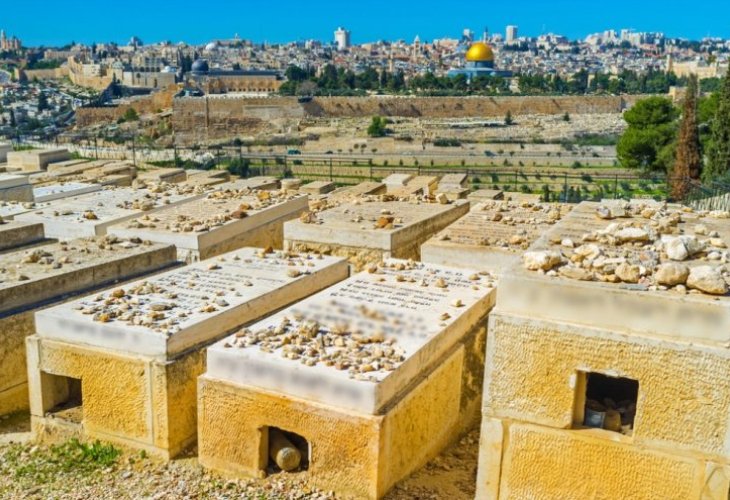Faith
Spiritual Death and Renewal: Ezekiel’s Call to Return and Live
How the prophets explain spiritual death, divine love, and the path back to eternal life through repentance
 (Photo: shutterstock)
(Photo: shutterstock)The prophet Yechezkel (Ezekiel) declares in the name of God: “For I do not desire the death of the dead” (Ezekiel 18:32). How can someone who is already dead die again? What does it mean that God does not wish for the death of “the dead”?
A Jew who lives in opposition to the Torah and the true purpose of life is considered spiritually “dead.” His heart beats, his lungs provide oxygen to his body, he walks on two legs, sees, hears, and speaks, but his soul, the higher spiritual essence within him, has been cut off. In reality, many such living-dead people walk among us — alive in body, but dead in soul.
A Jew who is disconnected from God and from the mission given to him in this world severs himself from eternal life, forfeiting the everlasting good that God had intended for him. He loses his portion in the future Garden of Eden that will be revealed here in our world after the time of redemption. As a side note, the “world of souls” is described as only a temporary station for the soul until the coming of Mashiach and the resurrection of the dead, when eternal perfection will be realized in this world.
The commentary Metzudat Tzion explains on this verse: “the death of the dead” — he is called ‘dead’ in reference to his end. Meaning, at the end of his life he does not merit the World to Come or the resurrection of the dead, and his soul is lost forever. As the prophet Daniel says about the future: “Many of those who sleep in the dust of the earth will awake, some to everlasting life, and some to shame and everlasting disgrace” (Daniel 12:2).
Thus, a person who lives disconnected from Torah is already considered spiritually dead, and at the end of his life he dies an eternal death because he forfeited his share in the World to Come and his soul is lost for eternity. Is there any hope for such a “living-dead” person? Absolutely. Yechezkel continues: “Return and live!”
Metzudat David explains: “What I ask in repentance is because I do not desire the death of the sinner who dies in his sin… therefore return from your wrongdoing and live.” The Malbim adds: “And live — meaning eternal life”. Through repentance one can return to life, reconnect with God, regain the lost soul, and merit eternal life. As the Torah says: “And now, Israel, listen to the statutes and the ordinances that I am teaching you to do, so that you may live” (Deuteronomy 4:1). Life without connection to Torah is not true life.
Yechezekel emphasizes further: “Say to them: As I live, says the Lord God, I do not desire the death of the wicked, but rather that the wicked should turn from his ways and live. Return, return from your evil ways, and why should you die, O House of Israel?” (Ezekiel 33:11). And again: “Do I desire at all the death of the wicked? says the Lord God. Is it not rather in his return from his ways, that he may live?” (Ezekiel 18:23). The meaning is clear: God does not seek to punish His children, but to awaken them so that they turn from their ways and merit life in this world and eternal life in the next. As the prophet states: “But if the wicked turns back from all the sins he has committed and observes all My statutes, and does justice and righteousness, he shall surely live; he shall not die” (Ezekiel 18:21). The Malbim explains this as life of both body and soul.
God does not wish such a tragic ending for His beloved children. Instead, He calls out: “Return! Return, My children, and live!”
The prophet Yirmiyahu (Jeremiah) echoes this divine call: “Return, O wayward children, says the Lord, for I have claimed you as My own, and I will take you, one from a city and two from a family, and bring you to Zion” (Jeremiah 3:14). Metzudat David explains: “You rebellious children, return to Me… and even if only a few return, I will take them.”
Throughout the Tanach, countless verses testify to God’s great love for each of us:
“You are children to the Lord your God” (Deuteronomy 14:1).
“It was not because you were more numerous than all the peoples that the Lord set His heart upon you and chose you — for you were the fewest of all peoples, but because of the Lord’s love for you” (Deuteronomy 7:7–8).
“For the Lord your God loves you” (Deuteronomy 23:6).
“I drew them with human cords, with bands of love” (Hosea 11:4).
“From afar the Lord appeared to me, saying: With eternal love I have loved you” (Jeremiah 31:3).
“I have loved you, says the Lord” (Malachi 1:2).
God constantly proclaims His love, showing us how precious we are in His eyes. It is precisely from this love that He desires our return to Him — just like a loving father longs for his children.

